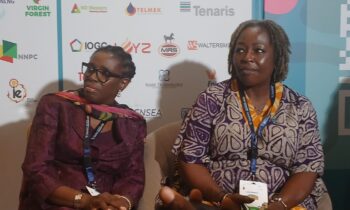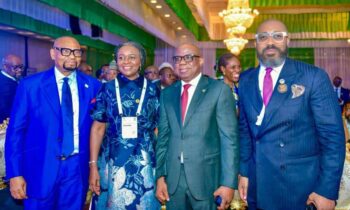OPEC Fund and the Islamic Development Bank (IsDB) have planned to provide funds that will help bring to realisation the $25 billion Nigeria-Morocco gas pipeline.
According to the Moroccan Ministry of Finance in a press statement at the weekend, an agreement to that effect was signed between the Moroccan Finance and Economy Minister, Nadia Fettah and the General Director of the OPEC Fund Abdulhamid Alkhalifa.
The OPEC Fund would make available $14.3 Million which would fund the second phase of the studies in the submarine gas pipeline project.
The Islamic Development Bank had in January, signed an agreement with Morocco to provide $15.45 million to the gas pipeline under the “Service Ijara” operation.
It also agreed to fund 50 percent of the Front-End Engineering Design (FEED) Study for the Nigeria-Morocco Gas Pipeline project.
As for Nigeria, the IsDB will contribute $29.7 million in the FEED study which aims at preparing the required studies for the gas pipeline and help take the final investment decision by 2023 for the infrastructure project.
The OPEC Fund for International Development is the intergovernmental development finance institution established in 1976 by the Member States of the Organization of the Petroleum Exporting Countries, OPEC.
Earlier, an Australian company WorleyParsons had announced on Wednesday in a statement that it has been awarded the second phase of the studies, which is progressing in accordance with the initial project planning.
The event will engage the leaders to help shape the global, regional and local agenda in the energy sector including COP 27, renewable energy, hydrogen, oil & gas, power, coal, clean mobility, digital transformation among others.
This gas pipeline project would cover 7,000-km long through 13 West African countries, and extend to Europe, according to WorleyParsons.
The Nigeria-Morocco Gas Pipeline, NMGP, is a new regional onshore and offshore gas pipeline that is intended to deliver natural gas resources of Nigeria to 13 countries in the West and North Africa as a continuation of the existing West African Gas Pipeline, WAGP, between Nigeria, Benin, Togo, Ghana.
Starting from Nigeria, the 5,660 kilometers long NMGP will pass through Benin, Togo, Ghana, Cote d’Ivoire, Liberia, Sierra Leone, Guinea, Guinea-Bissau, Gambia, Senegal, and Mauritania, to end at Tangiers, a Moroccan port on the Strait of Gibraltar, with a possible extension to Europe through Spain.
The project would be completed over a period of 25 years.
Worley has been awarded the contract to provide main front-end engineering design (FEED Phase II) services for the project.
The engineering study is progressing in accordance with the initial project planning, the company stated.
It will be the longest offshore pipeline in the world and the second longest pipeline overall.
The pipeline is expected to traverse 13 countries and will help to boost local industries and economies by delivering a reliable and sustainable energy source. It will also support industrial development and create employment opportunities. Additionally, the pipeline will provide a new avenue for countries along the route to export their gas to their neighboring countries and Europe. Delivering this project requires expertise from all over the world.
The overall FEED services will be managed by Intecsea BV, Worley’s offshore engineering consultancy business in The Hague, the Netherlands. This includes the development of the project implementation framework and supervision of the engineering survey.
The onshore FEED scope, the Environmental and Social Impact Assessment (ESIA) and Land Acquisition Studies (LAS) will be delivered by Worley’s team in London, UK. The project will also be supported by Worley’s network of offices in Africa and its global integrated delivery team in Hyderabad, India. Advisian, Worley’s global con-sulting business, will explore the acceleration of electrification and the feasibility of energy selfsufficiency in the region.
The UK and Madrid offices will set out the potential to use renewable energy resources to power the pipeline and reduce the project’s carbon footprint.
Ping Liu, Managing Director, Intecsea BV: “Being part of a project that not only looks towards sustainability, but also contributes to boosting regional economy and supports the development of local communities is an incredible opportunity.
NMGP is a project that reflects our purpose of delivering a more sustainable world. We look forward to working with ONHYM and NNPC as we journey into a new chapter for West Africa.” According to the details, the project falls in line with the “Decade of Gas Master Plan” that Nigeria’s President, Muhammadu Buhari, launched in 2020.
The master plan seeks to bolster Nigeria’s gas production and gas exports. On the Moroccan side, this landmark project is part of the South- South cooperation upheld by King Mohammed VI. It is expected to create a competitive regional power market and benefit all West African people, countries, and their economies.
The project was proposed in December 2016 following the signing of an agreement between the Nigerian National Petroleum Corporation (NNPC) and the Moroccan Office National des Hydrocarbures et des Mines (ONHYM) or rather the National Office of Hydrocarbons and Mines.
In June 2021, the Chief Operating Officer of the gas and power of the Nigerian National Petroleum Corporation (NNPC), Yusuf Usman, announced the start of the project.
In August, Nigeria’s Petroleum Minister, Timipre Sylva, announced that the government of Nigeria contemplates supplying Europe with their gas, using the Nigeria-Morocco gas pipeline.
Morocco was planning to create a public company to manage the scheme involving the supply of natural gas from Nigeria through a pipeline that will cross over several African countries.
The Moroccan Energy Ministry, which will be in charge of developing domestic gas infrastructure and networks in the North African Arab country, also applauded plans for the company creation. “Arrangements are ongoing to set up a company for gas network development in Morocco and to supervise the scheme to construct a gasoline from Nigeria, which will become Africa’s largest gas infrastructure project,” Morocco’s Economy and Finance Ministry stated.
The Islamic Development Bank (IsDB) agreed to fund 50 per cent of the Front-End Engineering Design (FEED) Study for the Nigeria-Morocco Gas Pipeline project. The multilateral development finance institution focused on Islamic finance will support the Moroccan contribution and participate in the financing of the project with $15.4 million under the “Service Ijara” operation. For Nigeria, the IsDB will contribute $29.7 million in the FEED study which aims at preparing the required studies for the gas pipeline and help take the final investment decision by 2023 for the infrastructure project.
The IsDB funding will help carry out the environment & social impact study in order to ensure the project compliance to all local and international environmental and social regulations and standards. It will also finance land acquisition studies for agreeing with all countries to be crossed by the pipeline to ensure smooth implementation of the works at a later stage.
Olusola Bello





